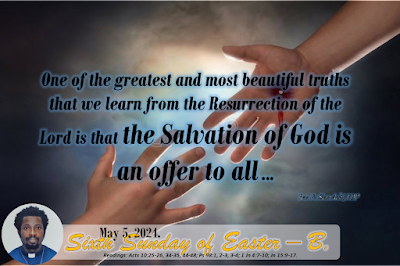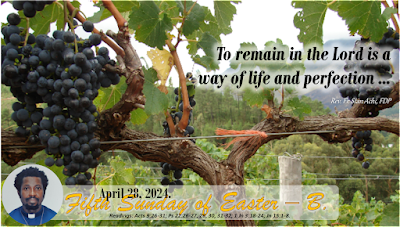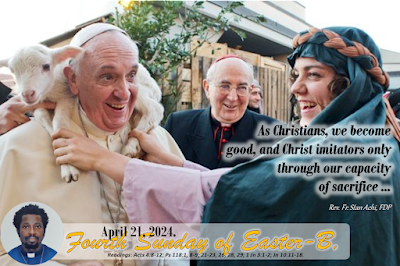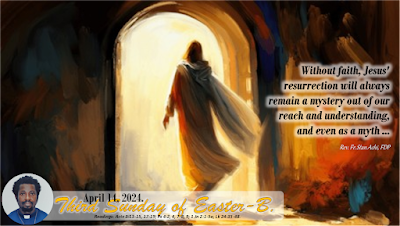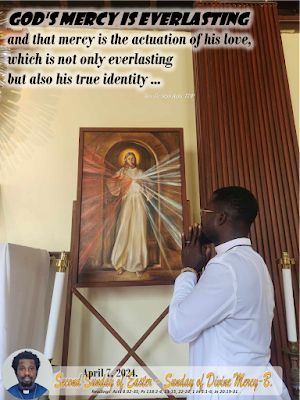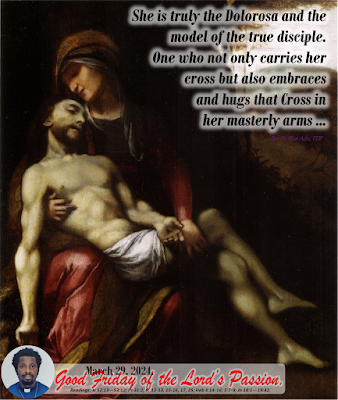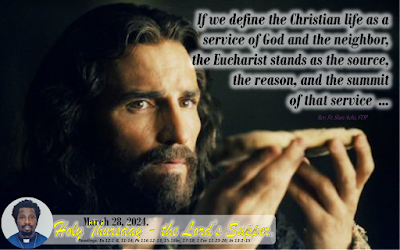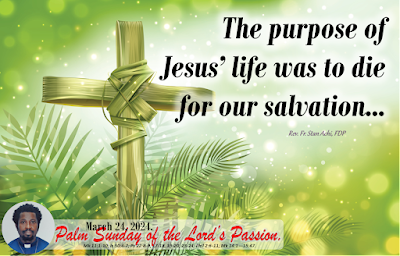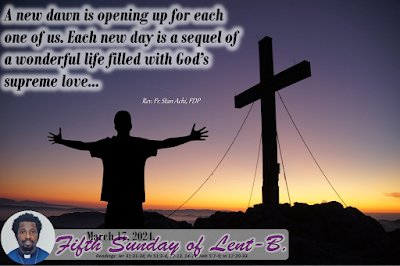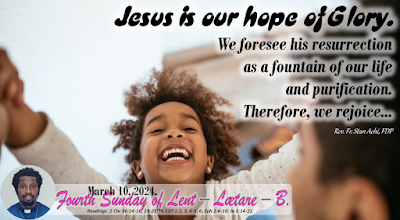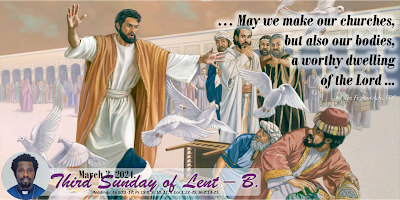"HE ASCENDED INTO HEAVEN."
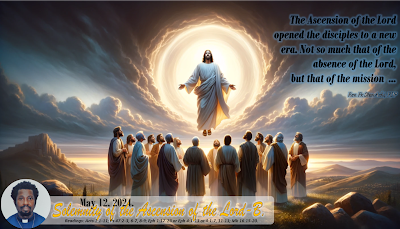
May 12, 2024. Solemnity of the Ascension of the Lord – B. Readings: Acts 1:1-11; Ps 47:2-3, 6-7, 8-9; Eph 1:17-23 orEph 4:1-13 or 4:1-7, 11-13; Mk 16:15-20. “Go and teach all nations, says the Lord; I am with you always, until the end of the world.” Mt 28:20 A Hebrew proverb says: “The world's like a ladder: one ascends, and one descends.” A Maori proverb adds: “Many make the descent to eternal darkness but few ascend to heaven.” When we profess our faith, in the Credo, here is what we say: "He ascended into heaven and is seated at the right hand of the Father. He will come again in glory to judge the living and the dead, and his kingdom will have no end." The Ascension of the Lord is a mystery that flows from his resurrection. But above all, it is a mystery that is deeply rooted in his Incarnation. It is because he once descended to be one of us that now he is ascending to be one with God. The one who as Christmas shared into our humanity, bore that humanity,
